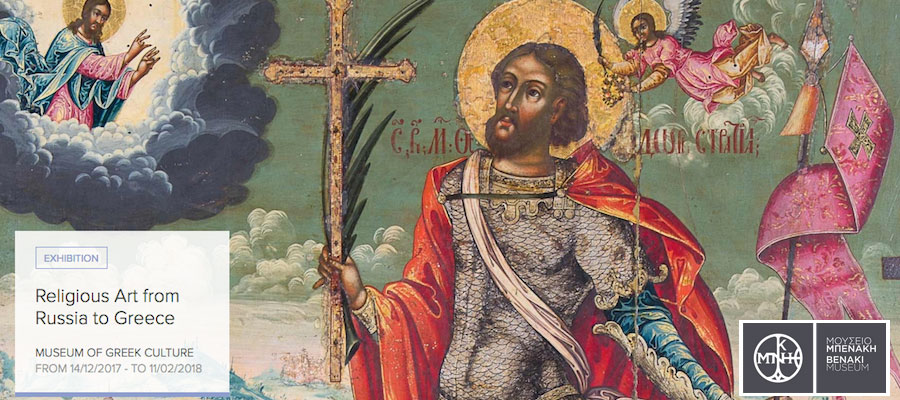Religious Art from Russia to Greece, Benaki Museum, December 14, 2017–February 11, 2018
The Benaki Museum, in collaboration with the Institute of Mediterranean Studies, presents for the first time to the Greek and international audience an exhibition with unknown Russian works of religious art and museum collections, temples and monasteries of Greece. The exhibition will be open to the audience since December 14, 2017, in the Benaki Museum of Greek Culture (Koumbari 1), and will run till February 11, 2018.
A large number of Russian icons and ecclesiastical furnishings are kept in monasteries, churches and collections in Greece. These important but as yet unknown works of art offer a valuable testimony not only to the history of religious art in Greece but also to the cultural interaction and political ties between Russia and the Balkans and Eastern Mediterranean in the early modern era, from the beginning of the 16th until the end of the 19th century. The wide distribution of Russian religious artworks in the Greek communities and religious centers was achieved through a composite nexus that penetrated the whole stratification of both societies. Starting from the Tsar and the exchange of formal diplomatic gifts to the zeteai, petitions for financial support addressed by the Greek monasteries to the Russian orthodox, as well as the trading activity of Greek and Russian merchants.
The exhibition will shed light to the various aspects of the phenomenon, focusing on the movement of objects and their reception by and integration in a new ethnic, religious and cultural environment. The various paths and diverse forms of reception and adoption in the Greek world will be explored, as well as issues of dating of the Russian artworks and attribution to Russian workshops.
Some of the most significant museums in Greece are lending masterpieces for this exhibition. Among them, of particular importance are icons and works of art coming from historic monasteries and churches, where they had been deposited as votive offerings and gifts. As such, these works testify to the international radiance and theological authority of Greek monasteries in the Orthodox world.
